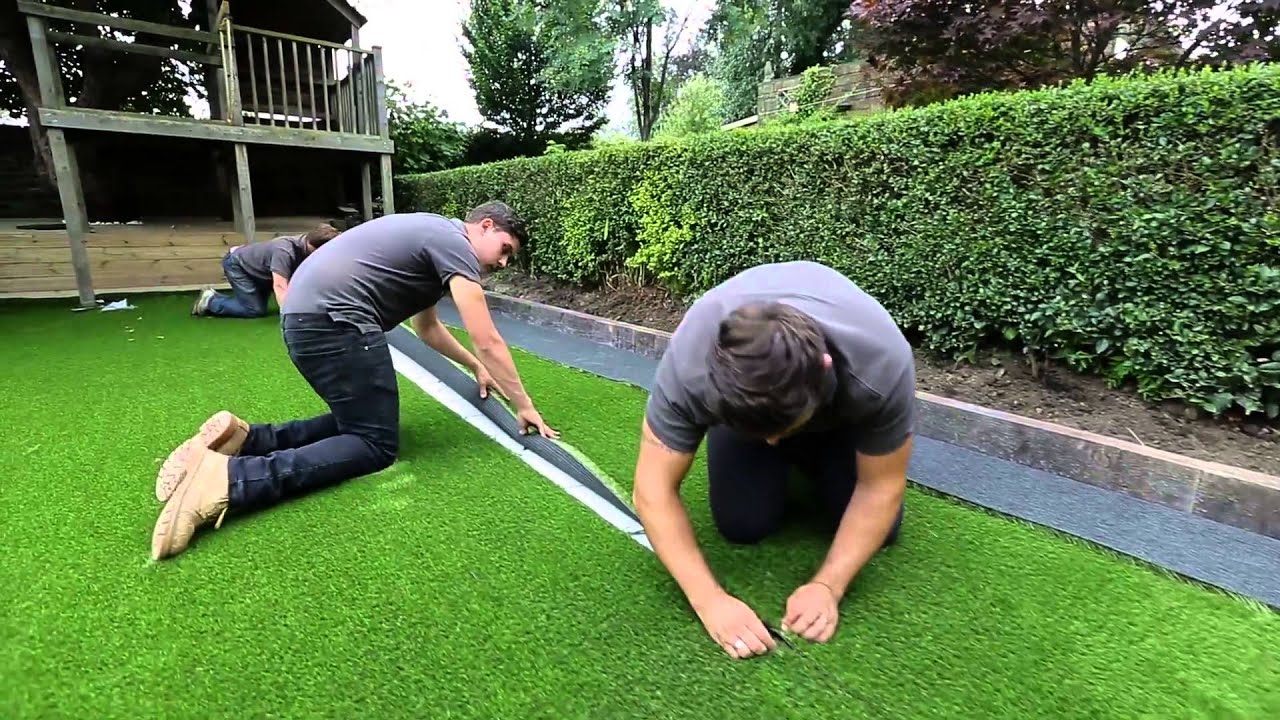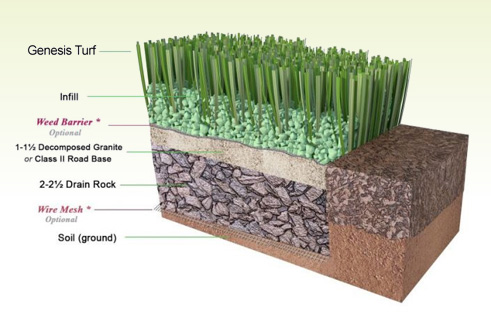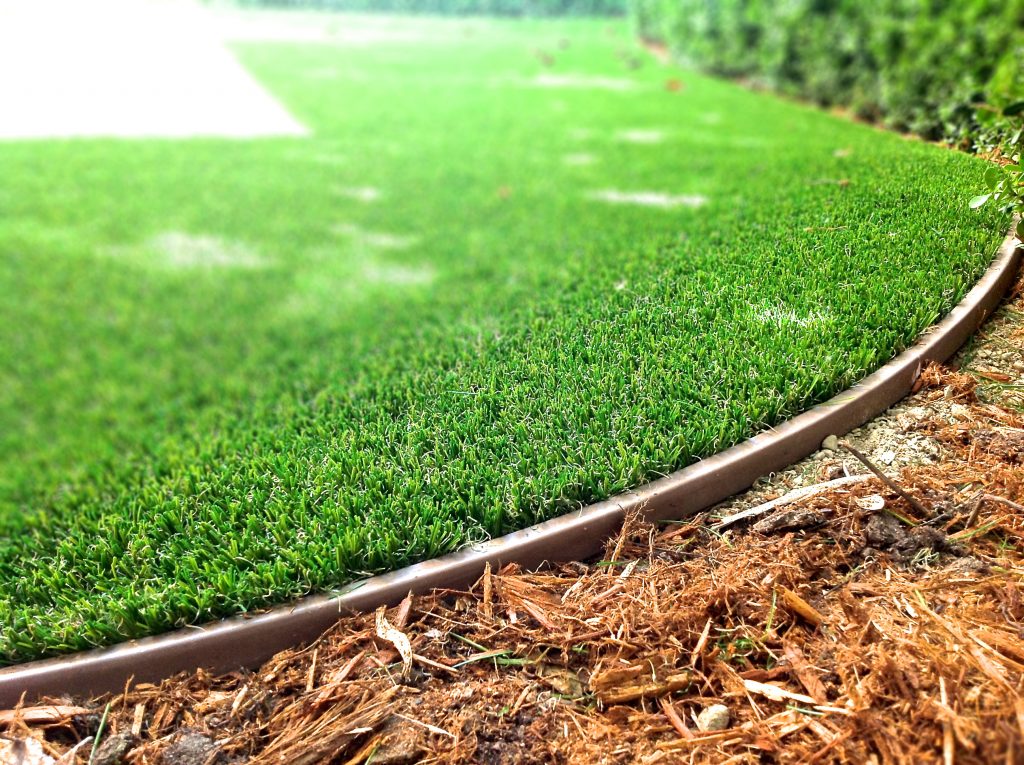Delve Into the Environmental Advantages of Opting for Artificial Turf Solutions
The fostering of synthetic grass remedies provides an engaging possibility to attend to pressing environmental difficulties. By considerably reducing water usage and reducing the application of hazardous chemicals, these choices not only advertise lasting landscaping yet also secure local communities. In addition, the reduced carbon footprint connected with reduced upkeep activities adds to a more lasting approach to land administration. However, the ramifications of these advantages extend beyond simple preservation efforts, questioning regarding their lasting impact on habitat conservation and overall environmental equilibrium. Exploring these dimensions discloses a complicated interaction worth taking into consideration.
Water Preservation Benefits
One of the most substantial benefits of artificial lawn is its capability to save water. In comparison, fabricated lawn does not require watering, substantially lowering the overall need for water sources.
By eliminating the need for normal watering, synthetic grass adds to lasting landscape methods and aids reduce the ecological effect of extreme water intake. Moreover, the conservation of water encompasses the reduction of runoff, which can cause soil erosion and waterway contamination.
In addition, the installation of synthetic grass allows districts and property owners to assign water sources a lot more successfully, concentrating on crucial uses such as alcohol consumption water and farming. The shift in the direction of synthetic grass not only promotes responsible water use however additionally lines up with more comprehensive environmental objectives focused on preserving natural deposits.
As neighborhoods progressively prioritize sustainability, the water preservation advantages of artificial turf offer an engaging instance for its fostering in household and commercial landscaping projects.
Reduced Chemical Usage
The shift to synthetic grass substantially decreases the reliance on chemical therapies frequently utilized in natural grass maintenance. Traditional lawn monitoring normally involves the application of pesticides, fertilizers, and herbicides to advertise growth and control insects. These chemicals can present dangers to human wellness, regional wildlife, and the atmosphere, adding to soil and water contamination.
In contrast, synthetic grass eliminates the requirement for these damaging materials. By reducing the release of artificial compounds right into the community, artificial grass advertises healthier dirt and water systems.
Moreover, the absence of chemical runoff linked with fabricated turf setups aids secure local rivers from air pollution, supporting marine life and preserving biodiversity. Artificial turf companies phoenix. As areas progressively focus on lasting methods, going with fabricated turf provides a feasible remedy that lines up with ecological conservation goals. Through this shift, building owners can delight in rich green rooms without jeopardizing environmental health and wellness, paving the method for an extra lasting future
Reduced Carbon Impact

Additionally, the installment of synthetic grass can lead to significant water preservation. All-natural grass need substantial quantities of water for watering, which not just includes in the carbon impact associated with water extraction and treatment but also stress regional water resources. On the other hand, synthetic grass needs minimal maintenance, needing no watering, thus substantially lowering water use and its linked power expenses.
Additionally, the longevity of synthetic turf contributes to its lower carbon effect. With a life expectancy of as much as 15 years or more, the need for constant substitutes is reduced, leading to less waste and reduced power intake in manufacturing and disposing of traditional grass choices. Generally, synthetic grass presents a lasting choice for environmentally aware landscaping.
Environment Conservation
Environment conservation is a vital consideration in the discussion over landscape design choices, specifically when comparing synthetic grass to natural turf. All-natural lawn lawns frequently call for considerable upkeep, including making use of fertilizers, herbicides, and chemicals, which can negatively influence local ecological communities. These chemicals can seep right into the soil and rivers, damaging native vegetation and fauna and interfering with local habitats.
In comparison, synthetic grass provides a possibility to lower the environmental impact of landscaping. By choosing for artificial grass, property owners can decrease the disruption of all-natural environments connected with traditional yard treatment practices. Man-made lawn gets rid of the demand for damaging chemicals, therefore protecting close-by wildlife and preserving the stability of bordering ecosystems. Furthermore, the installation of synthetic grass can bring about the conversion of former grass areas into more biodiverse landscapes, such as pollinator gardens or native plant areas, which can support regional wild animals.
Ultimately, the change to synthetic grass not only preserves water and reduces upkeep efforts but additionally cultivates a much more harmonious relationship in between human tasks and the natural surroundings, promoting environment preservation in the process.
Long-Term Sustainability
Long-term sustainability is an important element in evaluating the benefits of synthetic grass over standard turf lawns. One of the most significant advantages of artificial grass is its sturdiness; it can last up to 15-20 years with very little visit the site maintenance, whereas all-natural turf calls for frequent reseeding and substitute. This durability lowers the requirement for constant resources, such as water, fertilizers, and pesticides, explanation which are crucial for keeping a healthy and balanced yard lawn.
In addition, synthetic grass contributes to a decrease in carbon exhausts related to yard treatment devices. Traditional yards commonly require gas-powered lawn mowers, leaners, and blowers, all of which add to air pollution. Phoenix turf companies. On the other hand, man-made lawn removes the need for such tools, advertising a cleaner environment
Additionally, the production of synthetic grass significantly utilizes recycled materials, boosting its sustainability account. As producers embrace eco-friendly methods, the environmental footprint of synthetic grass remains to reduce.

Conclusion
The adoption of synthetic grass solutions provides significant environmental advantages, consisting of substantial water preservation, reduced dependence on dangerous chemicals, and a lower carbon impact. Synthetic grass help in protecting all-natural habitats by reducing land disruption and promoting long-lasting sustainability via the use of long lasting products. Collectively, these aspects underscore the capacity of synthetic grass to contribute positively to ecological from this source health and use a sensible alternative to conventional landscape design techniques in a significantly resource-conscious globe.
In contrast, fabricated turf does not need watering, considerably minimizing the total demand for water resources. By lessening the launch of artificial substances right into the community, man-made grass advertises much healthier dirt and water systems.
In addition, the installation of artificial turf can result in considerable water preservation. In comparison, synthetic grass needs minimal maintenance, requiring no watering, thus substantially lowering water use and its connected energy expenses.
